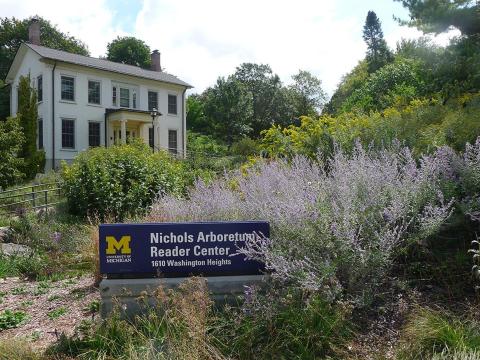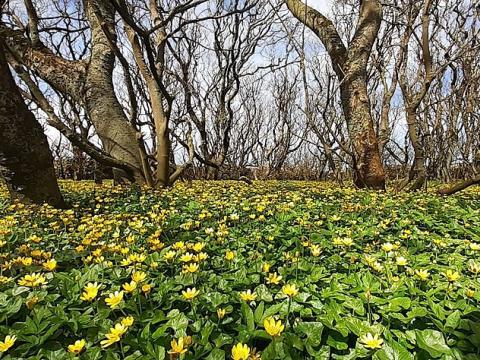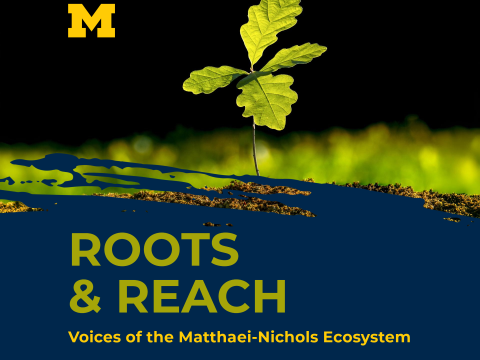
Fox blue corn and Illini squash plants growing at Matthaei Botanical Gardens in the summer of 2020.
As part of a multi-year collaborative pilot initially funded by the Graham Sustainability Institute, in late 2020 corn and squash seeds from plants grown at Matthaei Botanical Gardens went back to the indigenous communities from which their ancestors came.
This process—called rematriation—returns traditional seeds or plants to the community that was home before their ancestors were removed. In most cases a museum or institution collected the plants or seeds for research or study.
The University of Michigan’s Museum of Anthropological Archaeology (UMMAA) holds one of the largest collections of ethnobotanical seeds in North America. Many of the collections are traditional crop seeds such as corn from tribes of the American Southwest, but a few are from Anishinaabec tribes in the Great Lakes region.
The year 2020 marked the third planting and harvesting cycle of the pilot program. This year Matthaei-Nichols, together with tribal members, U-M students, and UMMAA, grew corn and squash seeds from seeds as old as those at the UMMAA as part of our phased plan. In 2020, Fox (Meskwaki) blue corn came from the USDA (via Dan Cornelius of Intertribal Agriculture Council and squash from Illini).
Both the gardens and museum are working to establish respectful relationships with the tribes whose collections we now steward—an under-appreciated fact, given that U-M properties are on historic tribal lands.
“We grow the plants, collect our basic data, and harvest the crop,” says David Michener, Matthaei-Nichols curator. “The harvest is then rematriated to the representatives of the community of origin.”
Michener explains that the institutional host, in this case the University of Michigan, is responsible for keeping the seeds and their curated information safe and intact, usually in the context of contemporary museum practices and ethics.
“As part of establishing healthy and respectful communication with the communities of origin, the institution may find rematriation a powerful tangible means to act on expressed values. It’s a way to ‘walk the walk’ of respectful interaction,” he adds. For the institutions, too, a respectful interaction may open ways to multiple future collaborative projects.
The repatriation pilot is a deeply collaborative project that brings together tribal elders and representatives from the 15 tribes represented in the Michigan Anishinaabek Cultural Preservation and Repatriation Alliance, the Great Lakes region, specialists from the United States Department of Agriculture, the InterTribal Agriculture Council, and the Indigenous SeedKeepers Network. In 2019 we began to work with U-M students and faculty affiliated with the Native American Student Association.





